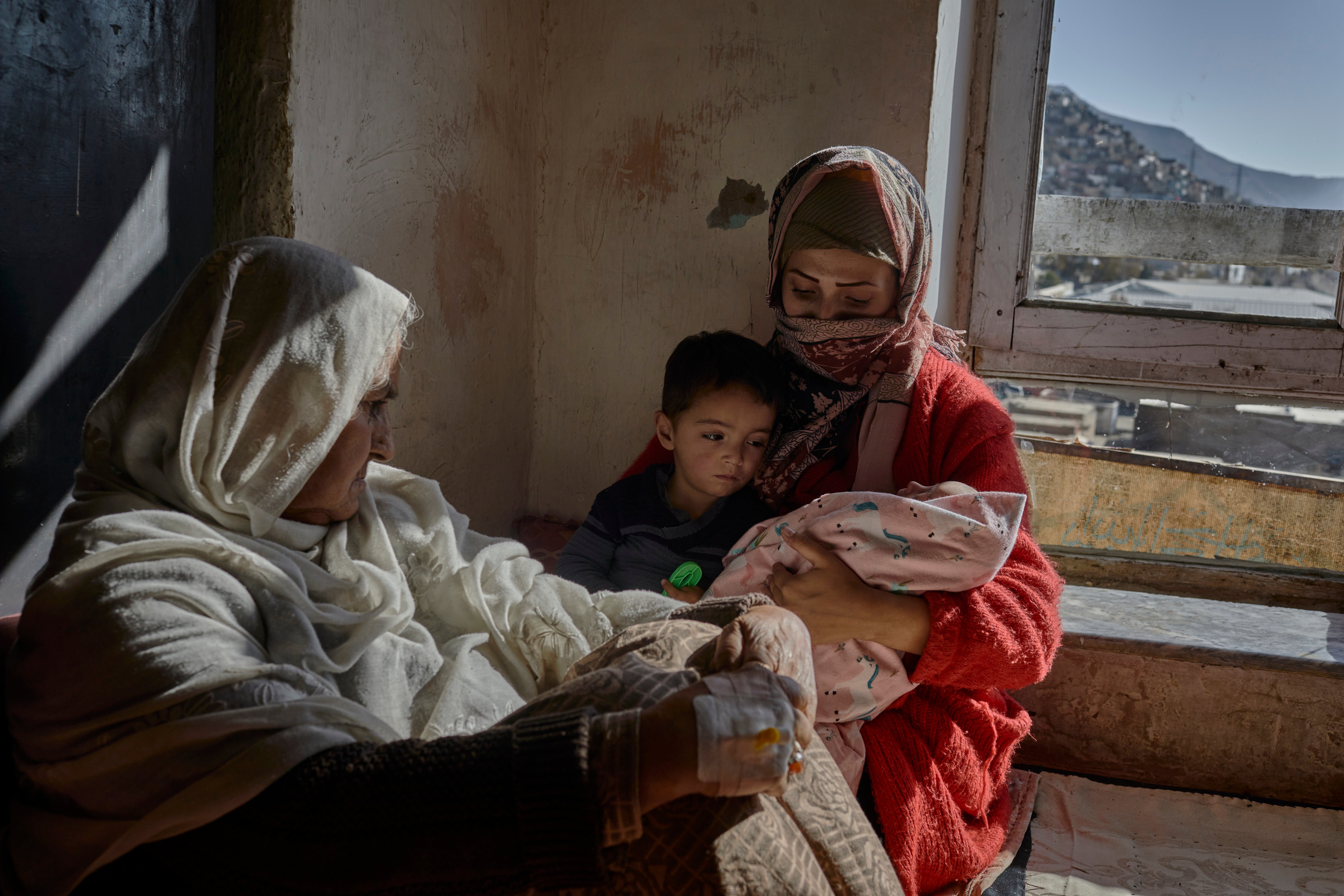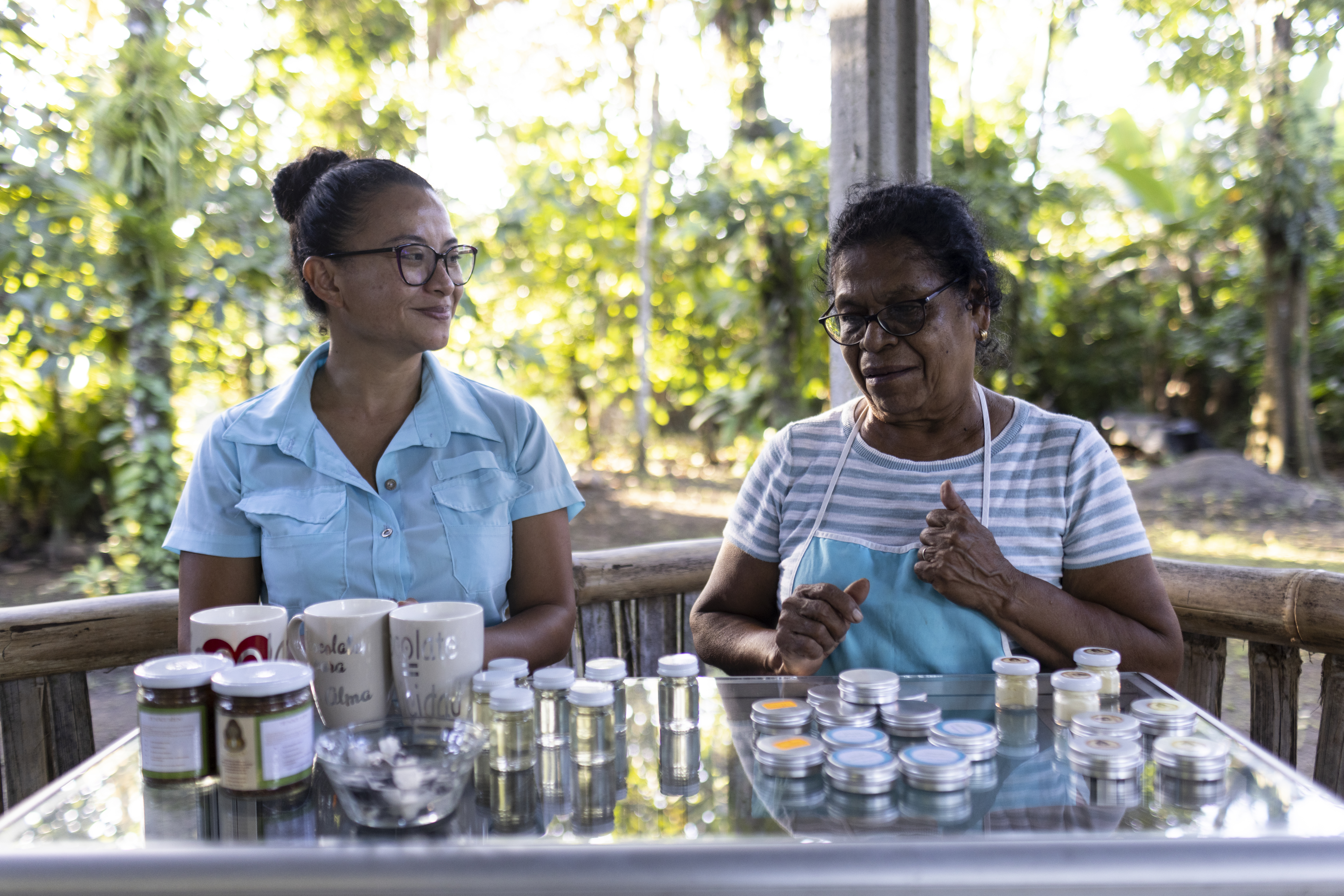More refugee girls must go to school, says UNHCR on International Women's Day
More refugee girls must go to school, says UNHCR on International Women's Day

GENEVA, March 7 (UNHCR) - As refugees around the world prepare to mark International Women's Day tomorrow, the UN refugee agency has renewed its commitment to increase the number of refugee girls in school - a move aimed at narrowing the disparity in numbers between refugee boys and girls attending school.
Last year, girls made up 39 per cent of refugee children attending UNHCR-assisted primary schools. This figure dropped to 29 per cent at secondary school.
In Dimma, a remote refugee camp on Ethiopia's border with Sudan, a UNHCR education officer reviewing education programmes in January this year found the gender disparity to be even more dramatic. Out of a total of 570 refugees attending secondary school, only six are girls.
"These figures confirm the need to strengthen partnerships and bolster efforts to promote girls' education in UNHCR-assisted and other programmes," said UNHCR's Deputy High Commissioner, Mary Ann Wyrsch, in a message to mark International Women's Day, which falls on March 8.
Citing parental attitudes towards girls, dependence on the labour of girls, sexual harassment of girls in school and early marriage as some of the causes of school drop-out among girls, the Deputy High Commissioner said more had to be done to remove persisting obstacles to girls' education.
"Education and literacy are key for empowering women and preparing girls for future roles," noted Wyrsch.
In Afghanistan, a new UN report on the situation of women and children in the war-torn country points out that the overall high illiteracy level of women and girls continues to be one of the main obstacles to their full participation in society.
The report also notes that women and girls made up half of the nearly 2 million returnees to Afghanistan last year, and that women comprise 25 percent of the returnees who have been employed under the Return and Reintegration of Qualified Afghans National Programme run by the International Organization for Migration (IOM).
In its renewed campaign to promote the education of refugee girls, UNHCR will, among other measures, push for the recruitment of more female teachers and classroom assistants, ensure that girls receive sanitary supplies, and raise awareness among parents on the need to send their daughters to school. More refugee girls will also be targeted for scholarship opportunities to increase their participation in formal education.
"We must try to increase opportunities through existing scholarship programmes such as the Houphouët-Boigny Peace Prize," said Joyce Mends-Cole, UNHCR's Senior Co-ordinator for Refugee Women. "Fifty percent of the places in this scholarship programme are currently reserved for refugee girls. Given the disparities that exist, we could consider increasing the number of places given to girls through this scholarship scheme."
In 1995, the UN Educational, Scientific and Cultural Organization (UNESCO) awarded the Félix Houphouët-Boigny Peace Prize to the then-High Commissioner for Refugees, Sadako Ogata, and her staff for their work on behalf of refugees and their contribution to promoting peace.
The prize money was used to support secondary education for young refugees with exceptional academic abilities. In 2002, for example, 97 students, 48 of them refugee girls in Ghana and Uganda, received Peace Prize scholarships that enabled them to attend secondary school. Nearly half of them in their final year of secondary school sat and passed their final exams last year.
On the representation of women at the highest level of decision-making in UNHCR, the Deputy High Commissioner said more needed to be done to achieve gender parity. At present, the number of women at the most senior level of the organisation averages 25 per cent.
Meanwhile, the refugee agency is marking International Women's Day with a range of activities around the world. In Uganda, Nakivale camp and Oruchinga settlement is inviting local leaders and the local community to join the refugees in a day of music, dance, poetry, exhibitions, sports games, as well as a sensitisation meeting on women's rights and empowerment.
In Greece, UNHCR's Women's Group - comprising prominent women like former First Lady Margarita Papandreou and Member of European Parliament Anna Karamanou - will visit a refugee reception centre, the first in a series aimed at providing relief to refugee women and finding durable solutions for them.
Refugee and returnee women and representatives in Afghanistan, Albania, Britain, Eritrea, Guinea, Indonesia, Iran and Mexico will also hold celebrations, conferences, discussions and informal gatherings to mark the occasion.








